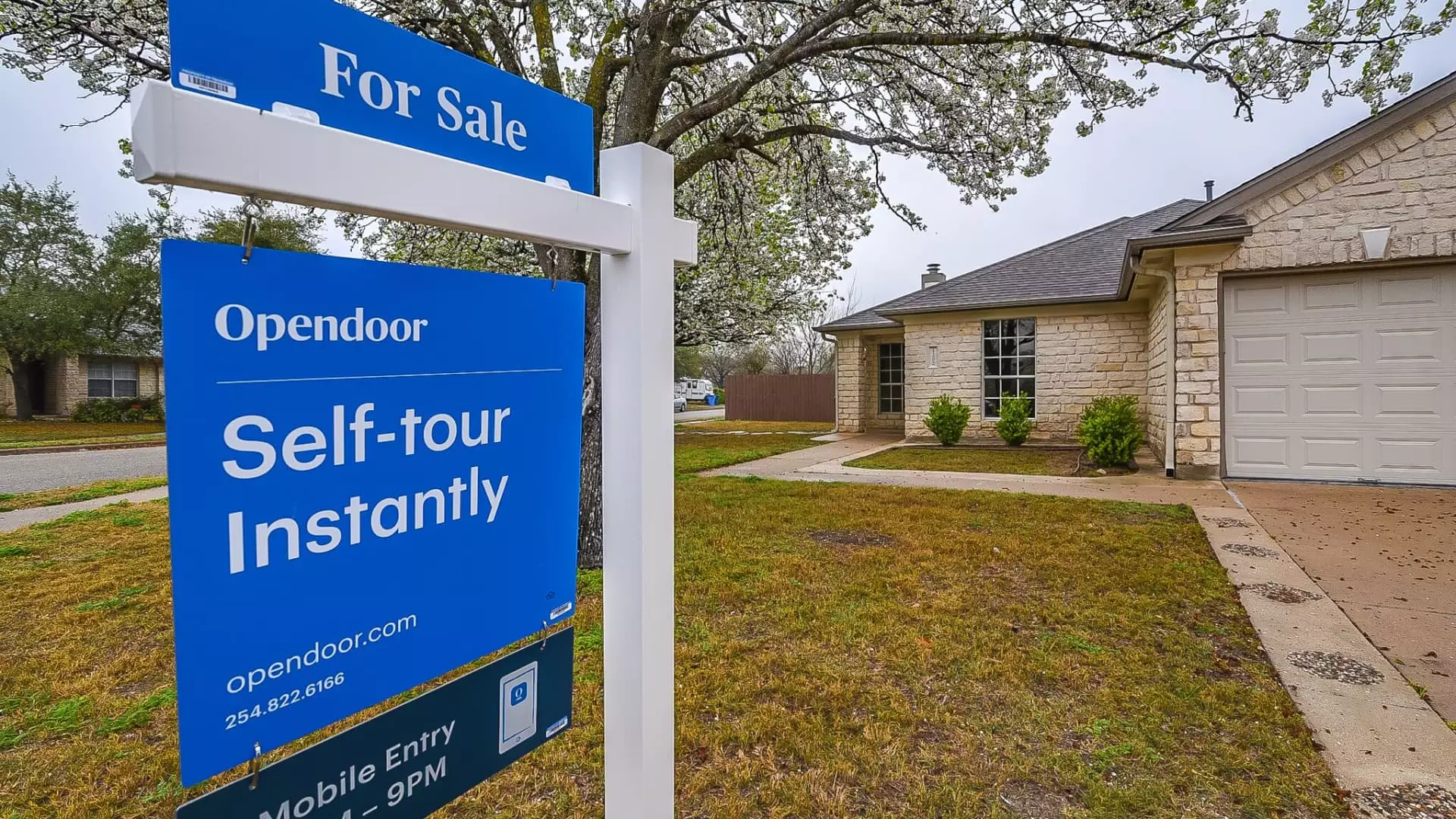In recent weeks, Opendoor’s shares have experienced an astonishing surge, climbing nearly fivefold since July. Such a meteoric rise, culminating in record-breaking trading volumes, might initially seem like a sign of revitalization and investor confidence. However, beneath this glossy veneer lies an unsettling narrative of volatility driven more by speculative fervor than genuine business strength. This rally, inspired largely by a handful of influential hedge fund actors, creates an illusion of resurgence that risks misguiding even the most optimistic observers. It’s crucial to recognize that such rapid appreciation does not necessarily reflect a company’s operational health, but rather the erratic nature of bullish trading fueled by rumors and pumping rather than fundamentals.
The Reality Check: A Troubled Foundation
Opendoor’s history has been marred by the classic pitfalls of the real estate tech sector—overvaluation, market dependency, and susceptibility to macroeconomic shocks. Since its inception in 2014, the company’s strategy centered around leveraging technology to purchase and resell homes at profit. Yet, this model relies heavily on a flourishing housing market and favorable borrowing conditions. When interest rates soared in 2022, the entire industry experienced acute pain, with revenue plunging from over $15 billion to just above $5 billion last year. The decline was severe enough that the company flirted with drastic measures, such as a reverse split, to maintain its presence on the Nasdaq. While Opendoor managed to stave off that particular maneuver, the underlying cracks persist—an indicator that the company’s fundamentals remain fragile amidst turbulent economic tides.
The Illusion of a Turnaround: A Fragile Glimmer of Hope
Proponents argue that the recent bumps in revenue and losses indicate a potential resurgence. For example, a modest 4% increase in quarterly revenue and a narrowing net loss could be misconstrued as signs of rebirth. Yet, these numbers are deceptive when placed in context: revenue projections for the upcoming quarter are expected to decline substantially from the previous year, and the company’s acquisition of fewer homes illustrates a business retraction rather than expansion. Moreover, its strategic pivot toward a referral-based, less capital-intensive business model appears more a defensive move than an aggressive growth plan. The underlying housing market continues to deteriorate, with high mortgage rates suppressing demand and encumbering the company’s recovery prospects.
When Market Sentiment Becomes a Mirage
The thrill surrounding Opendoor’s stock appears driven in large part by persuasive commentary from influential investors—most notably hedge fund manager Eric Jackson, who publicly expressed his bullish outlook, even positing a target of $82 per share. Such optimism, while enticing, should be scrutinized critically. Jackson’s confidence reflects hope rather than evidence; it hinges on expectations of a swift return to revenue growth and increased market share that are not supported by current data. The reality is that the company’s operational environment remains challenging. The stock’s recent movement, therefore, exemplifies how market narratives can distort perceptions, masking the systemic issues that have yet to be addressed.
The Danger of Complacency and Speculation
This speculative mania threatens to inflate a bubble that may burst once the market recognizes the disconnect between perception and reality. Investors, seduced by short-term gains, often overlook the deeper structural issues—namely, declining revenues, high operational costs, and an uncertain macroeconomic landscape. Opendoor’s strategic shift into referral-based services is a necessary evolution, but it is not a panacea. Until the company demonstrates consistent, sustainable revenue growth and profitability, its current valuation remains precariously speculative. It is vital for investors to temper enthusiasm with skepticism and demand tangible proof of a resilient, adaptable business model rather than succumbing blindly to market euphoria.
The Center-Left Perspective: Guarding Against Hype While Promoting Responsible Growth
From a center-wing liberal standpoint, this scenario exemplifies the dangers of unfettered speculation and the importance of responsible corporate stewardship. While fostering innovation and entrepreneurial risk-taking is essential, it should not come at the expense of careful oversight and risk management. Companies like Opendoor must be held accountable for their promises and projected recoveries, especially in volatile sectors heavily influenced by macroeconomic swings. It is crucial that investors, regulators, and corporate leaders prioritize transparency, strategic patience, and long-term sustainability over short-term gains fueled by market manipulation or hype. Supporting policies and practices that promote responsible investing ensures that innovation does not devolve into reckless speculation, safeguarding economic stability and protecting everyday consumers from market crash scenarios.
Opendoor’s recent rise is a perfect illustration of how market dynamics can deceive investors. The company’s fundamental challenges demand honesty and strategic discipline—not empty hope fueled by market hysteria. Only time will tell whether this speculative bubble can sustain itself or finally burst under its own weight.

